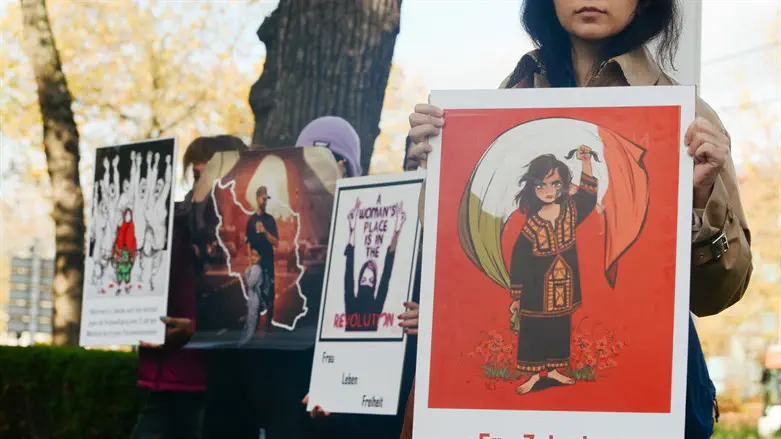
The US and Britain on Friday imposed sanctions on Iran ahead of the one-year anniversary of the death of Kurdish Iranian woman Mahsa Amini, whose death resulted in mass protests around the country, Reuters reports.
Amini, 22, died on September 16 last year while in police custody after being arrested for allegedly flouting the Islamic Republic's mandatory dress code. Her death sparked months of anti-government protests that marked the biggest show of opposition to Iranian authorities in years. Iranian security forces have been deployed in her hometown in anticipation of unrest this weekend.
The government crackdown on the demonstrations that followed Amini’s death resulted in hundreds of people being killed, including dozens of security personnel, and thousands arrested.
"Mahsa’s tragic and senseless death in the custody of Iran’s so-called 'Morality Police' sparked demonstrations across Iran that were met with unspeakable violence, mass arrests, systemic internet disruptions and censorship by the Iranian regime," US Secretary of State Antony Blinken said in a statement on Friday.
"We will continue to take appropriate action, alongside our international partners, to hold accountable those who suppress Iranians’ exercise of human rights," he said, adding that Canada, Australia, and other partners were also imposing sanctions this week.
The US Treasury Department in a separate statement said it imposed sanctions on more than two dozen people and entities it said were connected to Iran's "violent suppression" of protests in the wake of Amini's death its crack down on dissenting voices and restrictions to internet, according to Reuters.
The action targets 29 people and groups, including 18 key members of the Islamic Revolutionary Guard Corps (IRGC) and Iran's Law Enforcement Forces (LEF), as well as the head of Iran's Prisons Organizations, the department said. They also target officials linked to Iran's internet blockade and several media outlets.
The sanctions target LEF spokesperson Saeed Montazerolmehdi, multiple LEF and IRGC commanders, and Iran’s Prisons Organization chief Gholamali Mohammadi.
Douran Software Technologies CEO Alireza Abedinejad as well as state-controlled media organizations Press TV, Tasnim News Agency and Fars News were also among those sanctioned.
"The United States ... will continue to take collective action against those who suppress Iranians’ exercise of their human rights," the Treasury's Under Secretary for Terrorism and Financial Intelligence, Brian Nelson, said in the statement.
Britain separately announced its sanctions targeting senior Iranian decision makers enforcing Tehran's mandatory hijab law, including Iran's minister for culture and Islamic guidance, his deputy, the mayor of Tehran and an Iranian police spokesman.
The protests largely died down earlier this year following the crackdown. In July, Iranian authorities announced a new campaign to force women to wear the Islamic headscarf. Following the announcement, morality police returned to the streets.
In April, Iranian authorities announced that cameras would be installed in public places and thoroughfares to identify and penalize unveiled women.
Foreign-based rights groups have reported multiple arrests ahead of the anniversary of Amini's death.
Iran in the past year has also cracked down on journalists who reported about Amini’s case. Iranian authorities have questioned or arrested over 90 journalists since the nationwide protests last year.
(Israel National News' North American desk is keeping you updated until the start of Rosh Hashanah in New York. The time posted automatically on all Israel National News articles, however, is Israeli time.)